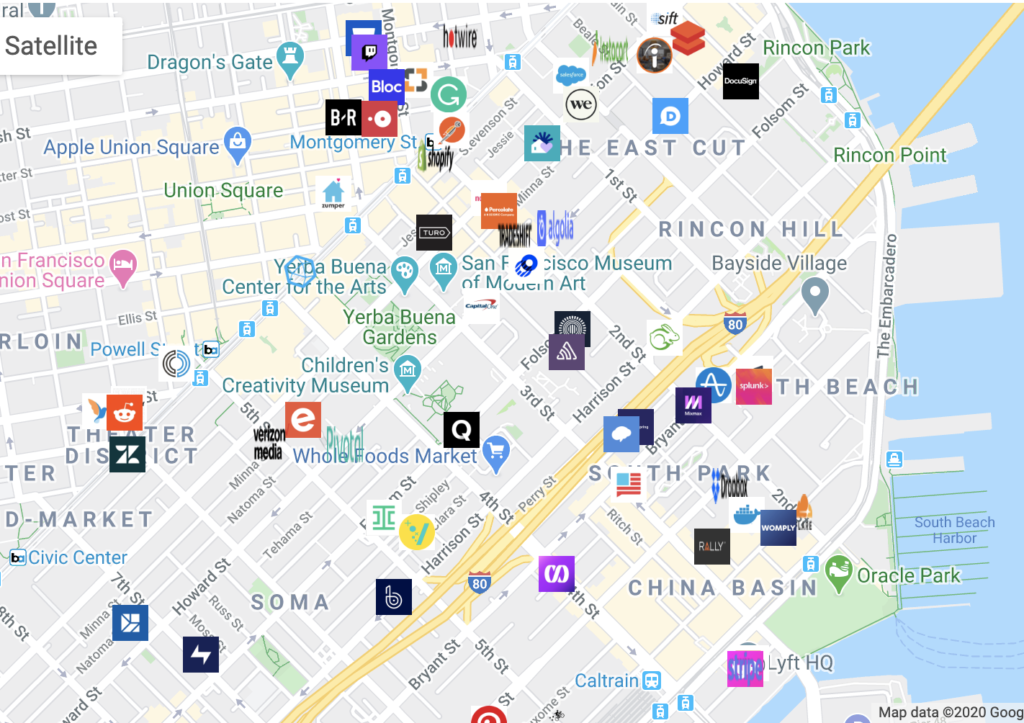Why Large Enterprises are moving to react?
Large companies create big enterprise applications for a large and critical userbase and they are very expensive to build.
After being burnt with Backbone, Angular, companies are wary of having to refactor in the same way yet again, as it is both expensive and out of their control. Large companies hate risk more than anything else.
React is backed by a large company (Facebook) with skin on the table with regard to taking React forward; it is used in their primary application. It has come out well in the big upgrade to React 16.x, and the React dev team seems to understand the need for long design life, typically 4–5 years.
Many popular companies have built the frontend of their applications using React.js. From Adobe to Zumper here are 108 companies that use React.js in the Bay Area, from San Francisco to San Jose.

Reasons for choosing to React
- After Angular 1.x gained popularity, React came onto the scene showing clear advantages over Angular: huge performance gains, better documentation, and the adoption of more progressive web development philosophies (i.e. functional APIs, modules, build toolchains, etc.). For developers moving from jQuery and/or Angular 1.x, it was a promising option.
- Since React beat Vue to the punch in this era of SPA frameworks, it built a vibrant community, supporting all sorts of popular UI frameworks like Bootstrap, among other technologies.
- Like I mentioned earlier, it encourages the use of functional programming techniques to write applications, alongside other growing data manipulation, event, and state libraries like Rx.js and Redux. Just a year or two ago, functional programming boomed, not just in the Javascript community, but also with languages like Haskell and Elm. Just great timing, really.
- React was also the first to get a native mobile implementation working with React Native, which made React, as an ecosystem, all the more appealing for companies trying to create web, iOS, and Android experiences without needing to hire several different teams to manage those projects separately.
- Attracting talent and hiring developers suddenly becomes a piece of cake. “We’re looking for a front-end developer who knows React.” It’s an easy word to throw around an ever-growing community of developers popping out of development bootcamps and schools all over. Inevitably, students tend to tinker with the more progressive technologies available, and I’m certain a good portion of developers fell in love with its benefits all around, but job readiness is huge in such a competitive market.
Companies who want to get into web development look for the most popular and certain technology. They find React as the major player in the front-end development, they don’t pay attention to other projects. More developers influence the job market, some companies choose what’s currently popular. And the cycle continues.
